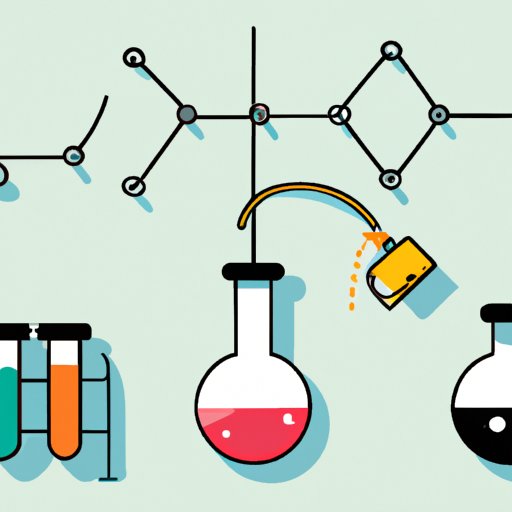Introduction
A science project is any project that explores or experiments with scientific concepts such as physics, chemistry, biology, or engineering. It is an excellent way to learn more about a particular subject and gain hands-on experience in the process. When done correctly, it can be an incredibly rewarding experience. However, there are certain steps involved in doing a successful science project which require careful research and planning.
Steps for Doing a Successful Science Project
The following steps should be taken to ensure that your science project is successful:
Selecting an Appropriate Topic
The first step in doing a science project is selecting an appropriate topic. It’s important to choose a topic that interests you and that you have a good understanding of. You should also consider the resources you have available to you, as well as the feasibility of the experiment.
Researching the Topic
Once you have selected a topic, it is important to do your research. Make sure to thoroughly read up on the subject and familiarize yourself with the relevant terminology. Additionally, it is beneficial to consult with experts and look for studies that have been conducted on the topic.
Formulating a Hypothesis
After researching your topic, you should formulate a hypothesis. This is an educated guess that you make based on your research. Your hypothesis should be testable, meaning that it can be proven true or false. This will serve as the basis for your experiment.
Planning the Experiment
Once you have formulated a hypothesis, you need to plan your experiment. This includes deciding on the materials you need, the method you will use, and the procedure you will follow. It is important to document every step of the process so that you can replicate the results in the future.
Carrying Out the Experiment
When you are ready, carry out the experiment. Make sure to follow all safety procedures and document your results as you go. Once you have completed the experiment, analyze the data and draw conclusions from your findings.
Documenting Results and Conclusions
Finally, document your results and conclusions. Make sure to include all of the data that you collected during the experiment, as well as your analysis and conclusions. Once you have documented your results, you can present them to others or submit them to competitions.

Examples of Successful Science Projects
To get an idea of what a successful science project looks like, here are some examples:
Identifying the Project
One example of a successful science project is a study conducted by high school student Emily C. on the effects of air pollution on plant growth. She hypothesized that plants exposed to higher levels of air pollution would grow slower than those not exposed to air pollution.
Explaining How It Was Completed
To conduct her experiment, Emily planted two sets of bean plants in two separate containers. One container was placed outside to be exposed to the air pollution while the other remained indoors. After several weeks, she measured the height of the plants and analyzed her results. She found that the plants exposed to the air pollution grew significantly less than the plants in the other container.

Tips for Selecting an Appropriate Topic
When selecting a topic for a science project, here are some tips to keep in mind:
Consider the Available Resources
Before beginning a science project, it is important to consider the resources you have available to you. Make sure that you have access to the necessary materials and equipment to complete the experiment.
Think About the Feasibility of the Experiment
It is also important to consider the feasibility of the experiment. Make sure that it is possible to complete the experiment within the given time frame and with the available resources.
Brainstorm Ideas
Take some time to brainstorm ideas and come up with a few different topics that interest you. Remember to focus on topics that you know something about and that you can feasibly complete.
Conclusion
Doing a science project can be a fun and rewarding experience. However, it is important to do your research and plan ahead before beginning the project. Be sure to select an appropriate topic, research it thoroughly, formulate a hypothesis, plan the experiment, and document your results and conclusions. Additionally, there are many resources available online to help with completing a science project.
(Note: Is this article not meeting your expectations? Do you have knowledge or insights to share? Unlock new opportunities and expand your reach by joining our authors team. Click Registration to join us and share your expertise with our readers.)
